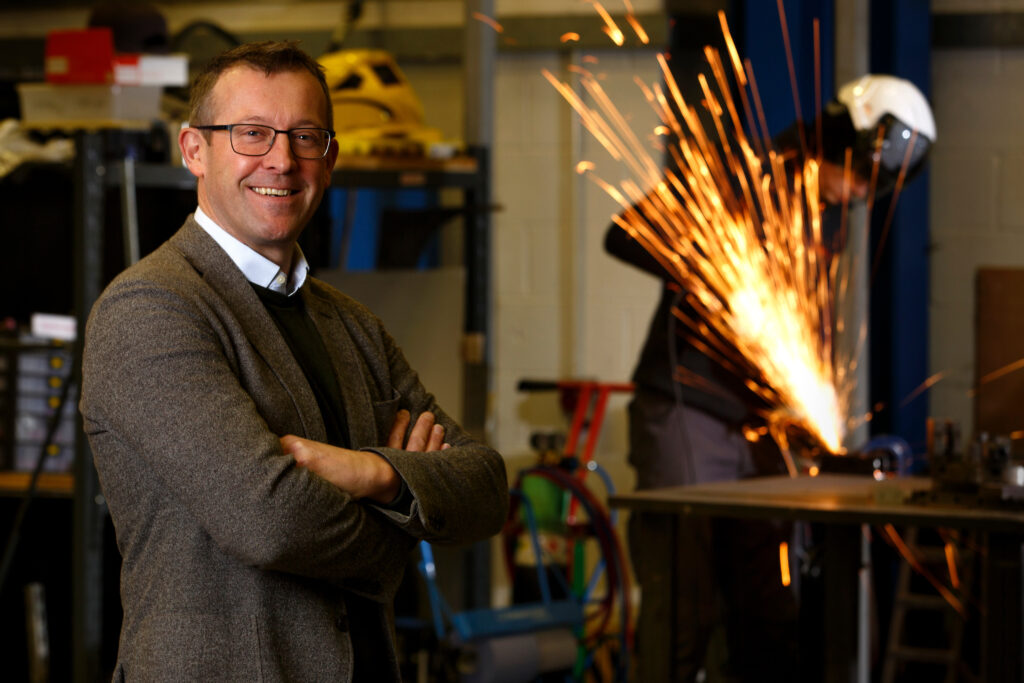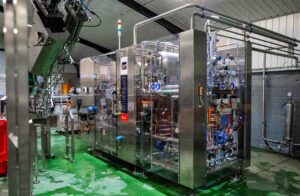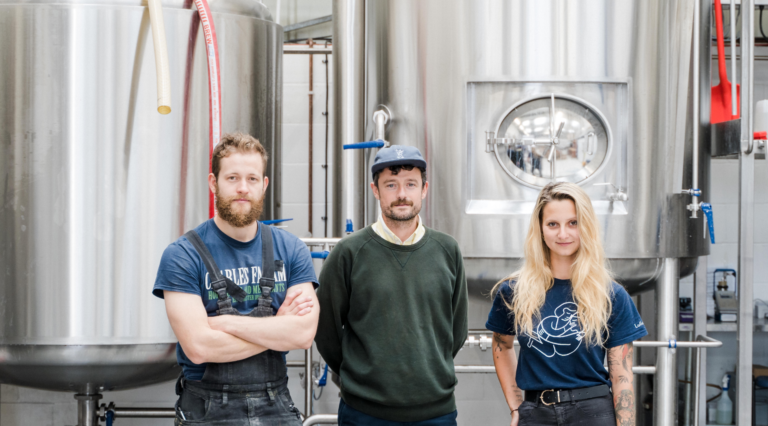British brewers could cut their carbon footprint using a new type of electric storage boiler.
The patented technology, developed by British start-up Caldera, can generate process heat or steam for brewing without the use of carbon-emitting gas or oil.
Caldera storage boilers use a solid material which is heated up using surplus energy from wind farms and on-site renewables such as solar PV. This energy is then stored with very high efficiency and released when required as high-pressure steam.
The Southampton firm is already producing a domestic scale heat store, which is currently being rolled out in a number of trial homes countrywide. They are now seeking to scale up their product for industry and have secured a £295,000 grant from the Department of Business Energy & Industrial Strategy (BEIS) to investigate the design and build of a UK factory capable of rolling out Caldera storage boilers at scale.
Caldera CEO James Macnaghten, said: “Industrial steam makes up 31 percent of the UK’s total industrial heat requirement and is a major element of the brewing process. This is normally provided by multiple steam boilers and accumulators that burn gas or oil.
“Banks of solid-state electric storage boilers can be charged up by off-peak renewables and on-site solar PV and can hold this heat for hours, ready to deliver high pressure steam as required at temperatures up to 200C. This will enable brewers to switch off fossil fuels as their primary fuel source, enabling an easily adopted route to low carbon electrical power.
“In addition, industrial steam boilers and steam accumulators store large quantities of superheated water, which brings significant cost and safety implications requiring continuous manning and detailed annual inspection. The adoption of electric storage boilers avoids these risks due to the low quantity of water used without combustion.
“Our product offers industry low carbon heat with a system which is simple, safe and easy to integrate,” Macnaghten concludes.
Each containerised unit contains multiple solid cores to provide 1.4MWh of storage, which can be combined with additional units to deliver as much capacity as needed. It can be set to charge from the grid at night when cheaper and greener electricity is available and can use on-site renewables.
The product will integrate easily into existing steam networks, reducing or removing reliance on existing fossil fuel steam boilers and accumulators. There is also potential to use the stored energy for thermal oil heating systems or space heating.
According to the UK Government, industry accounted for 16 percent of UK greenhouse gas emissions in 2018, making it the third largest emitting sector – therefore meeting the Net Zero target requires a near-complete decarbonisation of UK industry. The Committee on Climate Change (CCC) estimated that decarbonising industry will take c. £8 billion public and private investment a year.
The BEIS Industrial Fuel Switching competition aims to address this by providing innovation funding, as part of the £1 billion Net Zero Innovation Portfolio, to develop fuel switching and fuel switch enabling solutions for industry, while building the UK’s decarbonisation skills and supply chain.
UK Energy and Climate Change Minister Greg Hands added: “As we accelerate the UK’s energy independence by boosting clean, home-grown, affordable energy, it’s crucial that our industries reduce their reliance on fossil fuels.
“This investment will help them to not only cut emissions, but also save money on energy bills, on top of supporting jobs by encouraging green innovation across in the UK.”
The competition supports the recently published Industrial Decarbonisation Strategy (March 2021), which identified that government investment is required to advance the development of low carbon technologies to address the barrier around uncertainties associated with novel technologies for the private sector.









